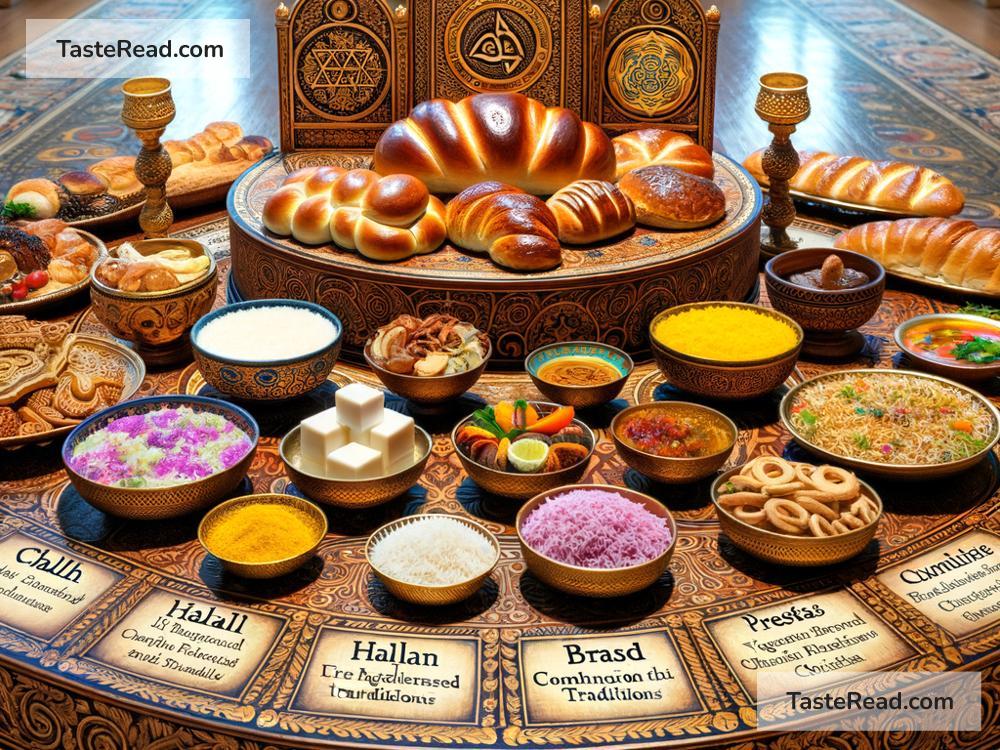Cultural Connections Between Food and Religion Worldwide
Food is more than just what we eat to stay alive; it carries deep meaning in cultures and religions across the world. It connects people, shapes traditions, and expresses beliefs. In many religions, food symbolizes ideas, rituals, and values, bringing individuals closer to their spirituality and communities. Let’s explore how food and religion are intertwined worldwide.
Food as a Sacred Offering
In many religions, food is seen as an offering to the divine. For example:
Hinduism: In Hindu temples, food known as “prasadam” is offered to deities and then shared with devotees. This offering symbolizes gratitude to the gods. Devotees believe that the food carries divine energy, making it spiritually purifying.
Buddhism: Monks in Buddhist communities rely on food offerings from laypeople. This act teaches giving and humility. In return, monks share spiritual teachings, creating a bond of mutual respect between both groups.
Indigenous Traditions: In many native cultures, food is offered to spirits or ancestors during rituals. For instance, Native American tribes may offer corn or other crops during ceremonies to honor the Earth and ensure plentiful harvests.
Fasting as Spiritual Discipline
Fasting is a common practice in religions around the world. It involves intentionally abstaining from food or certain types of food for a spiritual purpose. Fasting is often seen as a way to purify the soul, become closer to God, or focus on prayer and reflection.
Islam: During the holy month of Ramadan, Muslims fast from dawn until sunset. This fasting reminds them of the needs of the poor, encourages gratitude, and strengthens self-control and discipline.
Christianity: Many Christians observe fasting during Lent, the 40-day period leading up to Easter. Catholics may fast by giving up meat on Fridays or abstaining from indulgent meals, reflecting on sacrifice and repentance.
Judaism: On Yom Kippur, the holiest day of the Jewish calendar, Jews fast for 25 hours to focus on prayer and reflection while seeking forgiveness for past sins.
Hinduism: Fasting varies widely among Hindus, depending on the festival or devotion to a specific god or goddess. For example, many fast during the holy month of Shravan to honor Lord Shiva.
Feasting and Celebrations
Religion isn’t just about fasting—it’s also about feasting! Special meals often mark religious celebrations, symbolizing joy, gratitude, and togetherness.
Christian Celebrations: Christmas is celebrated with feasts involving specialties like roast turkey, ham, or festive desserts. Similarly, Easter Sunday is marked with delicacies like hot cross buns and chocolate eggs, symbolizing renewal and resurrection.
Jewish Traditions: Jewish festivals often revolve around food with symbolism. During Passover, unleavened bread called “matzah” is eaten to remember the Israelites’ hurried escape from Egypt, when they didn’t have time for their bread to rise.
Islamic Festivals: Eid al-Fitr, the festival that marks the end of Ramadan, is a time for feasting. Families prepare special dishes, such as biryani, sweet dates, or pastries like baklava, celebrating the completion of fasting.
Hindu Celebrations: Festivals like Diwali bring people together with a colorful variety of sweets and snacks that celebrate light, joy, and the triumph of good over evil.
Dietary Laws: A Sacred Way of Eating
Many religions include dietary rules that guide followers in choosing what to eat or avoid. These rules symbolize purity, discipline, and divine obedience.
Islam: Muslims follow halal dietary guidelines. Foods like pork and alcohol are forbidden, while others must be prepared a certain way. Halal reflects obedience to God’s commandments.
Judaism: Jews follow kosher laws, which prescribe specific rules about cooking, eating, and how food is prepared. For example, mixing meat and dairy is prohibited, and only certain animals, like cows and chickens, are acceptable for consumption.
Hinduism: Many Hindus avoid eating beef because cows are considered sacred animals. Some also maintain a vegetarian diet, believing it leads to spiritual purity and nonviolence (ahimsa).
Buddhism: Many Buddhists practice vegetarianism, reflecting principles of compassion and nonviolence toward living beings. However, dietary practices vary widely among different Buddhist communities.
Food and Spiritual Symbolism
Some foods hold unique spiritual symbolism in religious practices:
- Bread and Wine: In Christianity, bread and wine are central to the Eucharist, symbolizing the body and blood of Jesus Christ.
- Rice: In Hindu and Buddhist rituals, rice often represents abundance and prosperity.
- Dates: In Islam, dates hold spiritual significance, as Prophet Muhammad is said to have broken his fast with them.
Food Builds Community
Religion connects people, and food plays a big role in building those bonds. Festivals, fasting, and feasting often happen with family and community. Sharing meals can bridge gaps between generations, unite diverse groups, and foster a sense of belonging.
For example, Langar in Sikh temples offers free meals to people of all faiths and backgrounds. This tradition emphasizes equality, humility, and service.
Conclusion
Food is deeply rooted in the spiritual lives of people all over the world. Whether it’s an offering to a god, fasting for reflection, feasting to celebrate, or following dietary rules, food helps define major aspects of religious cultures. By exploring these connections, we see how food not only nourishes the body but also the soul. It’s a reminder that despite differences in beliefs, food can unite us—connecting traditions, values, and communities worldwide.


